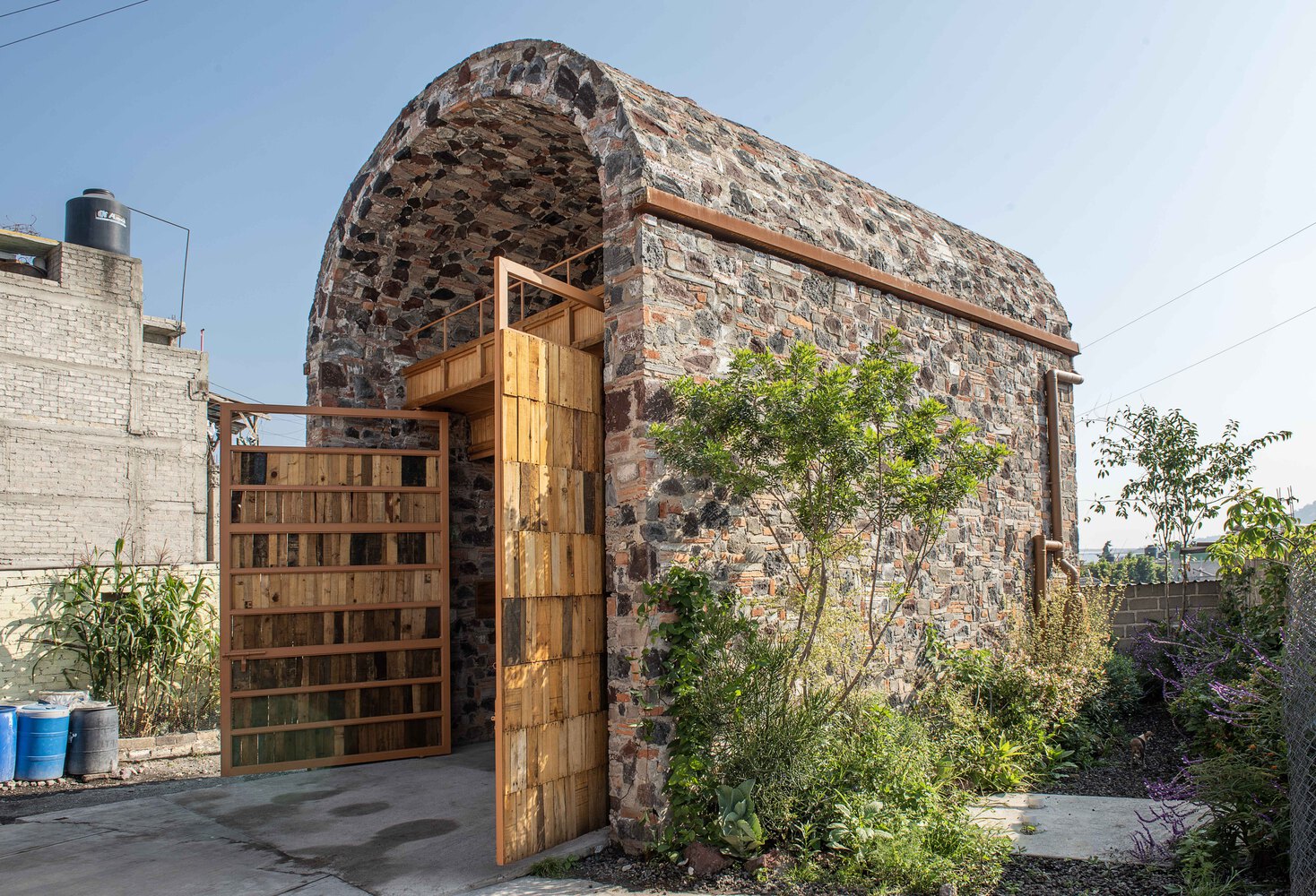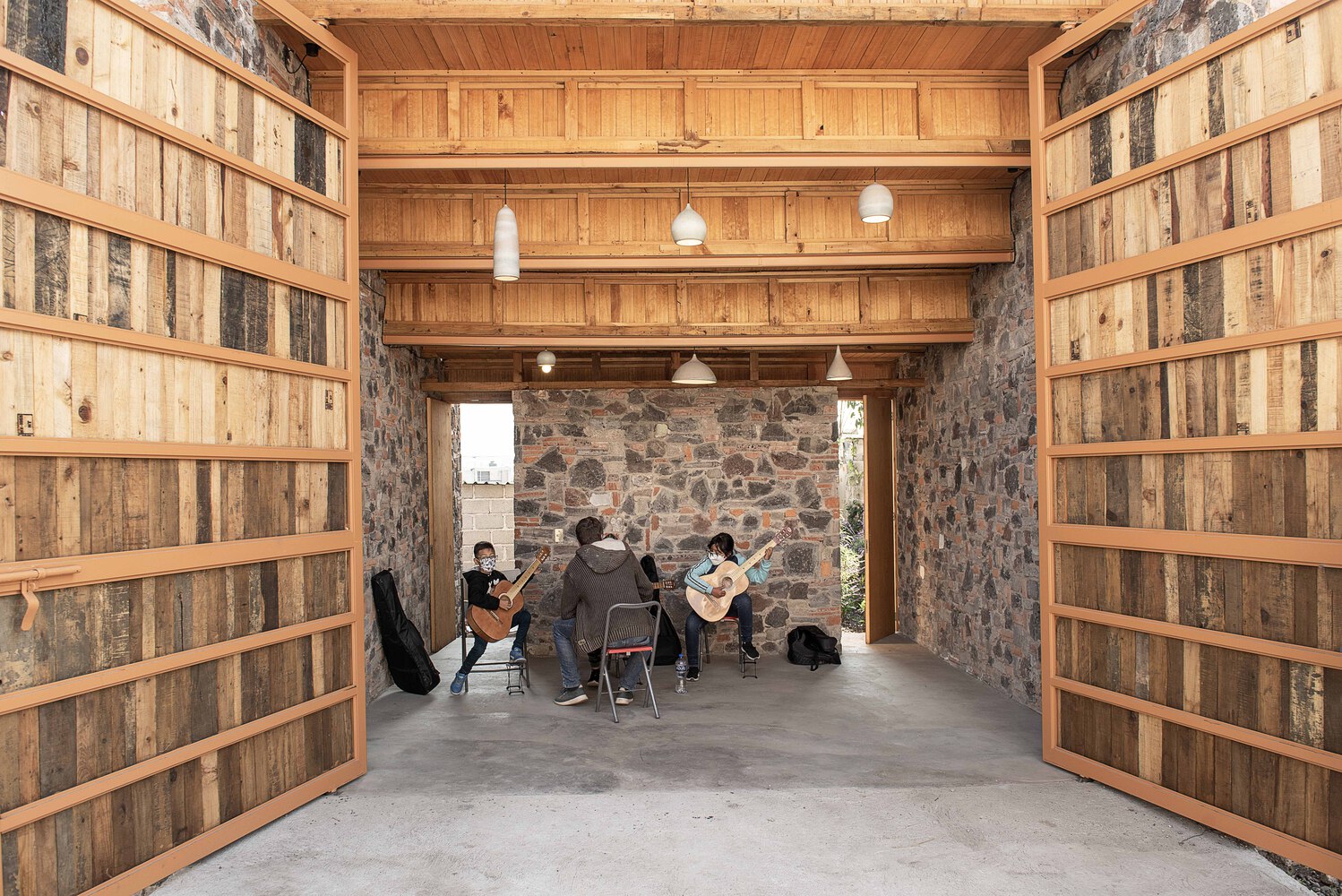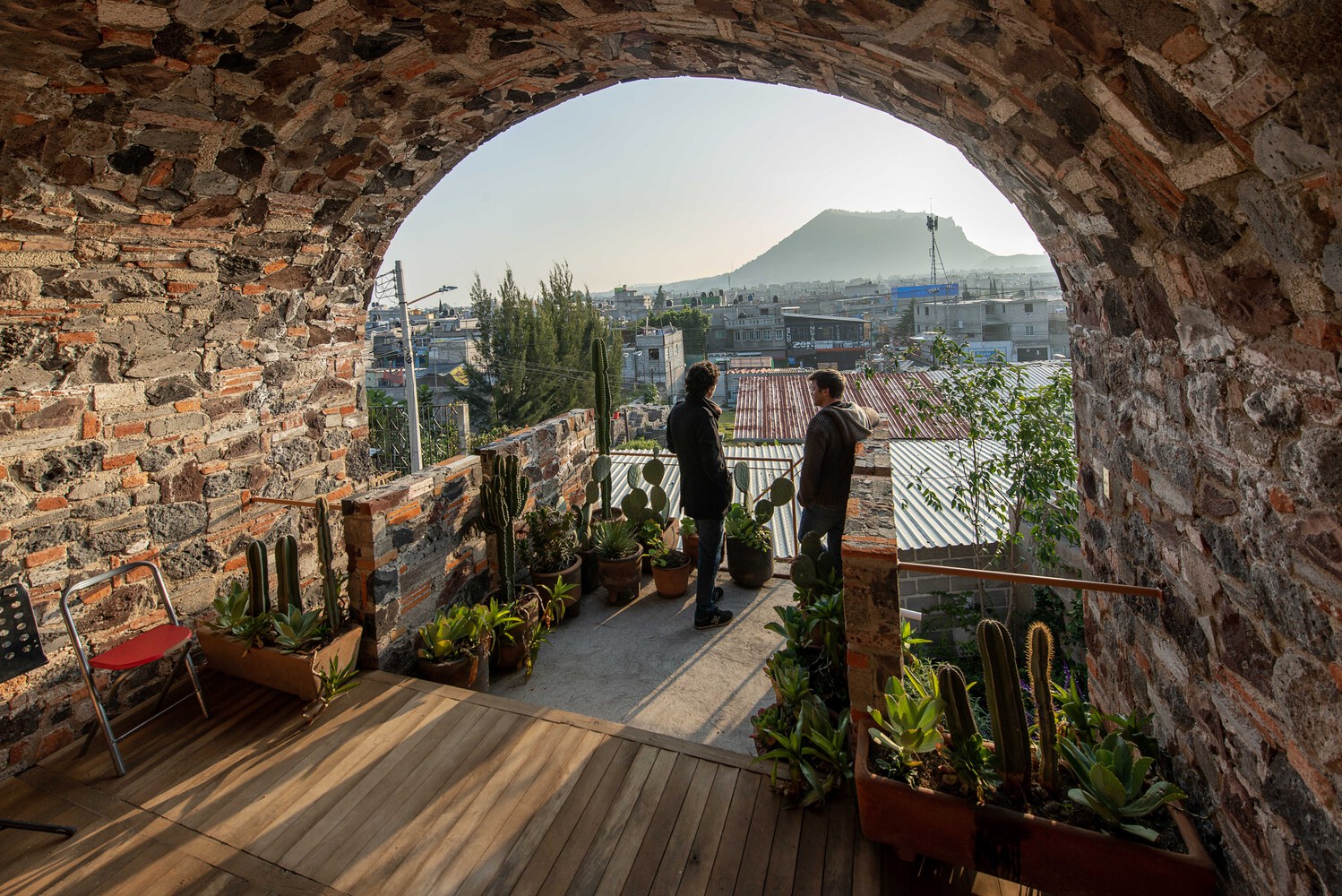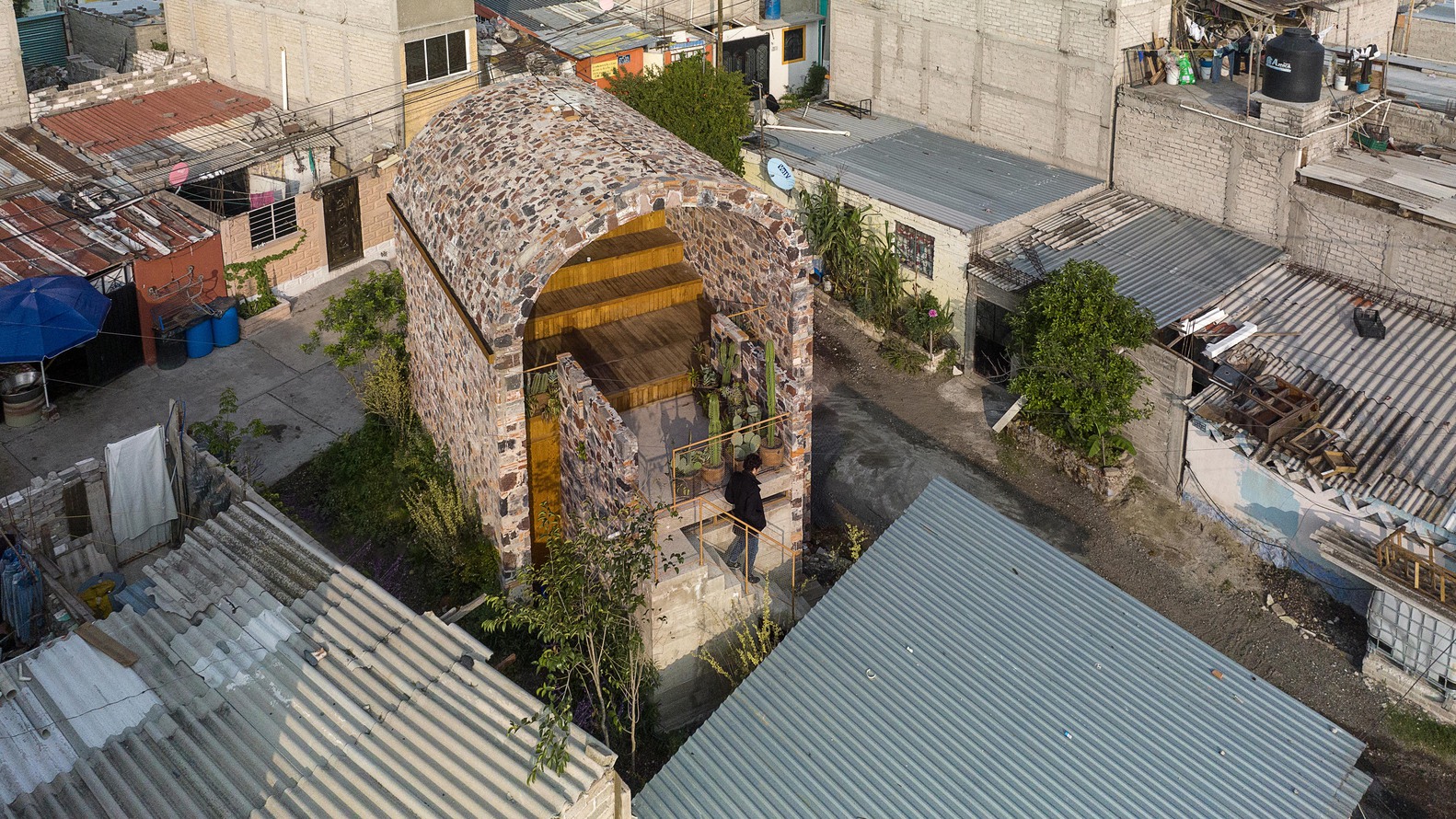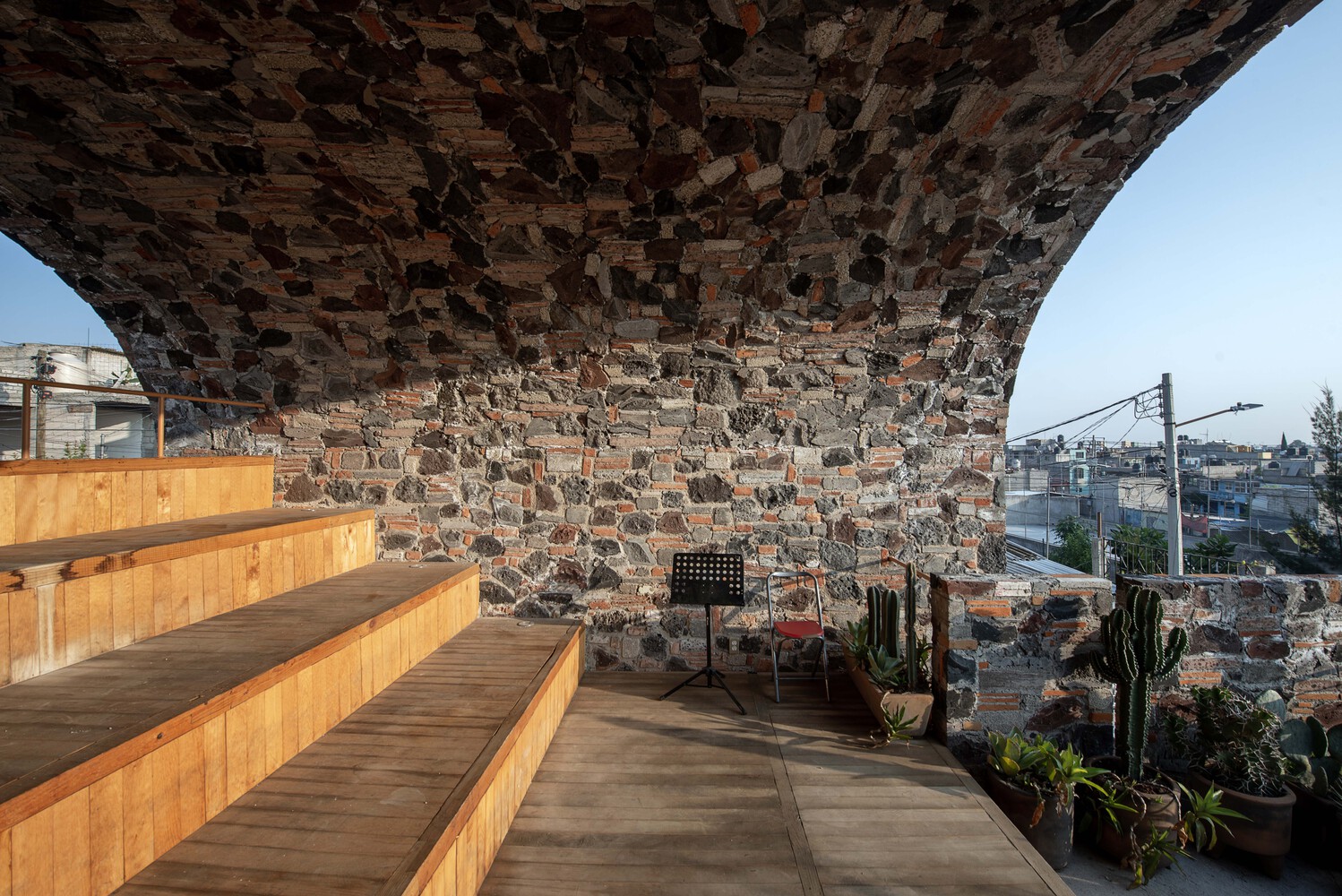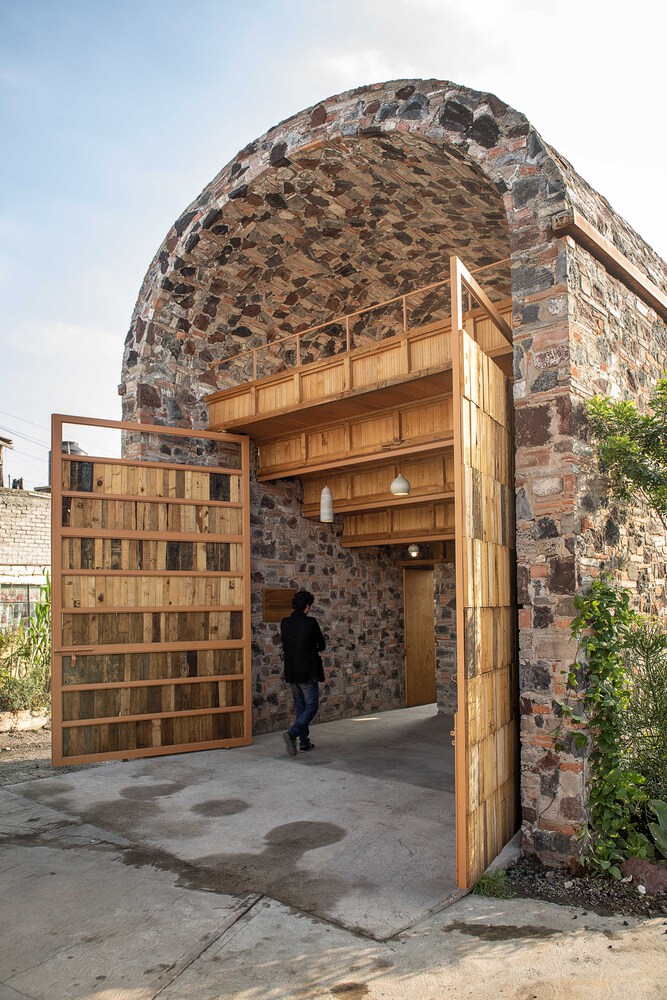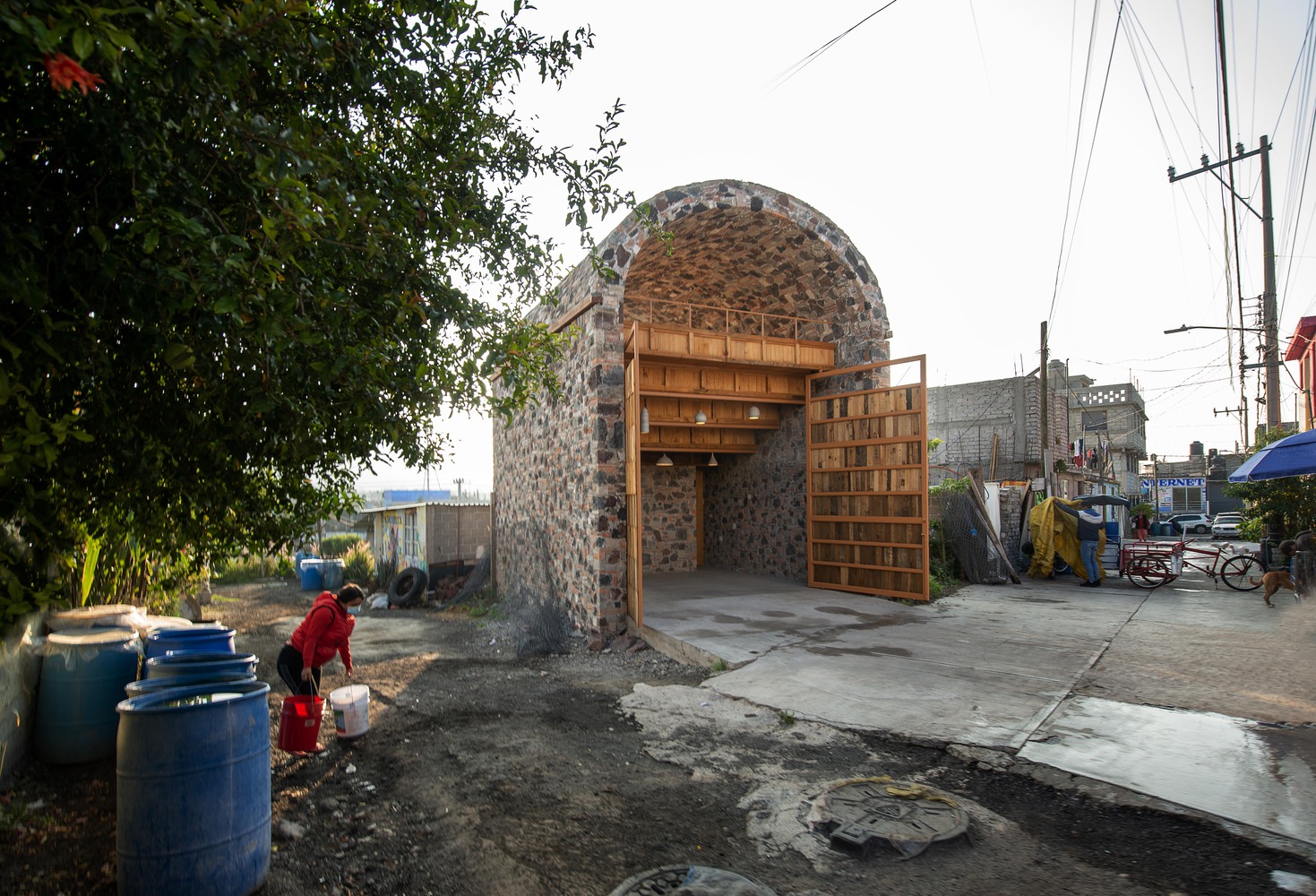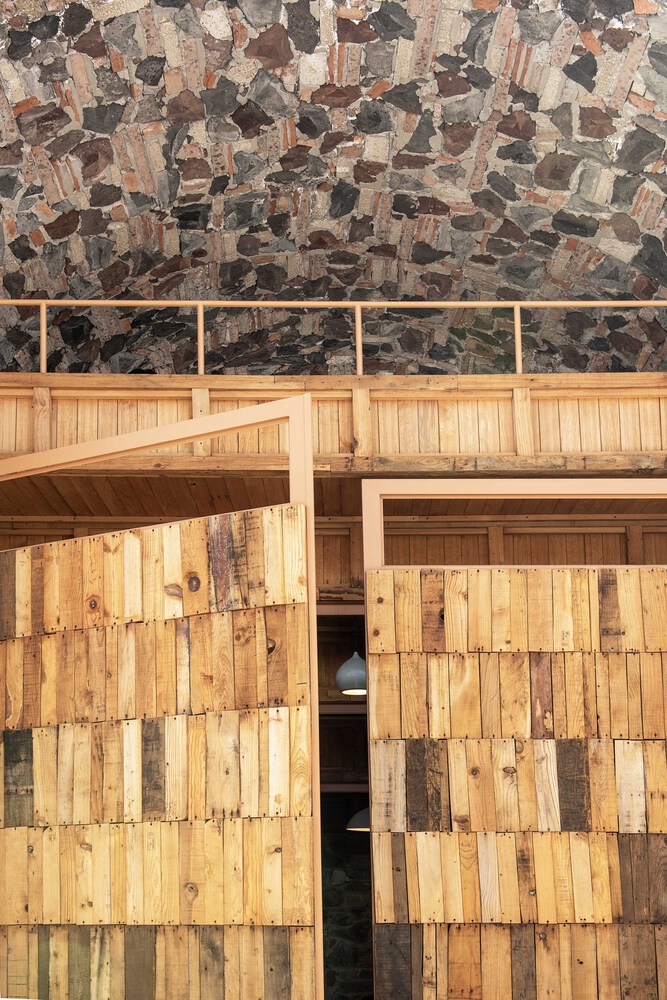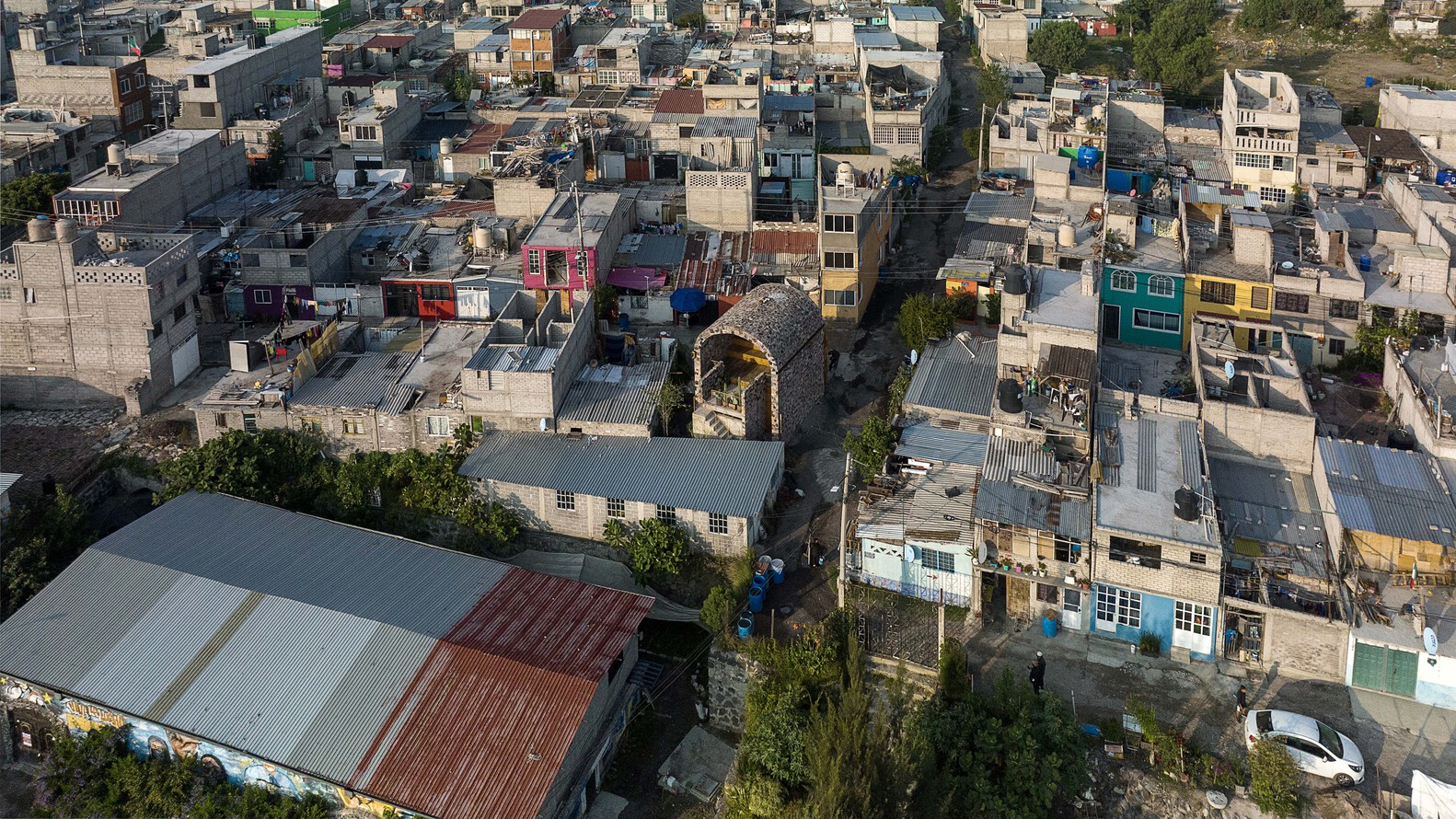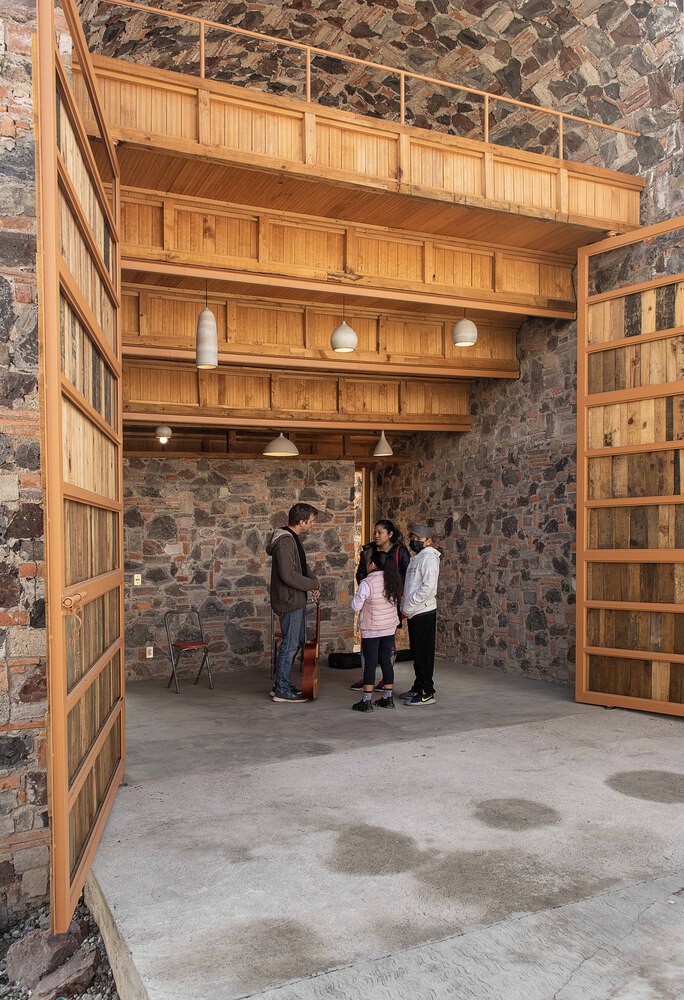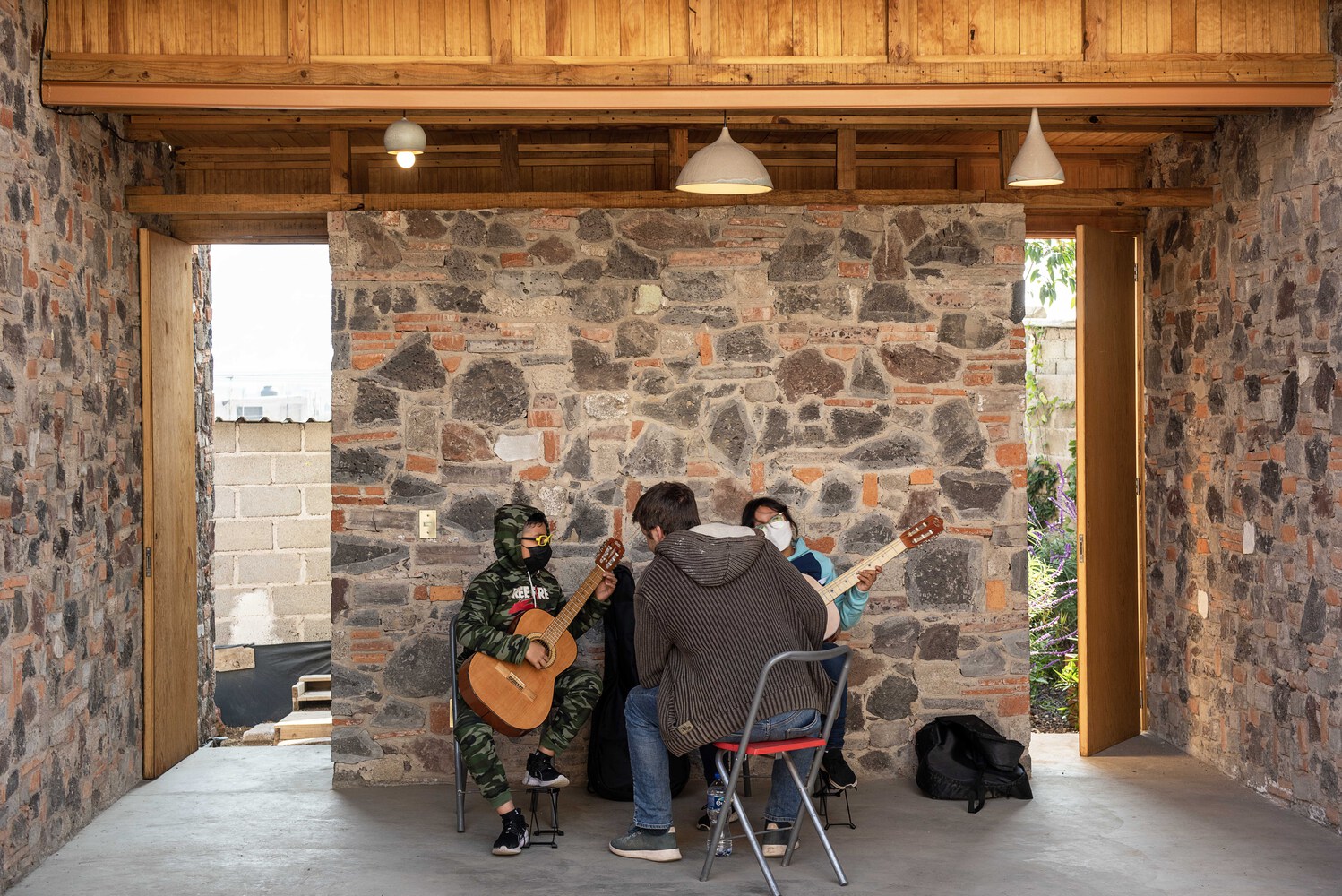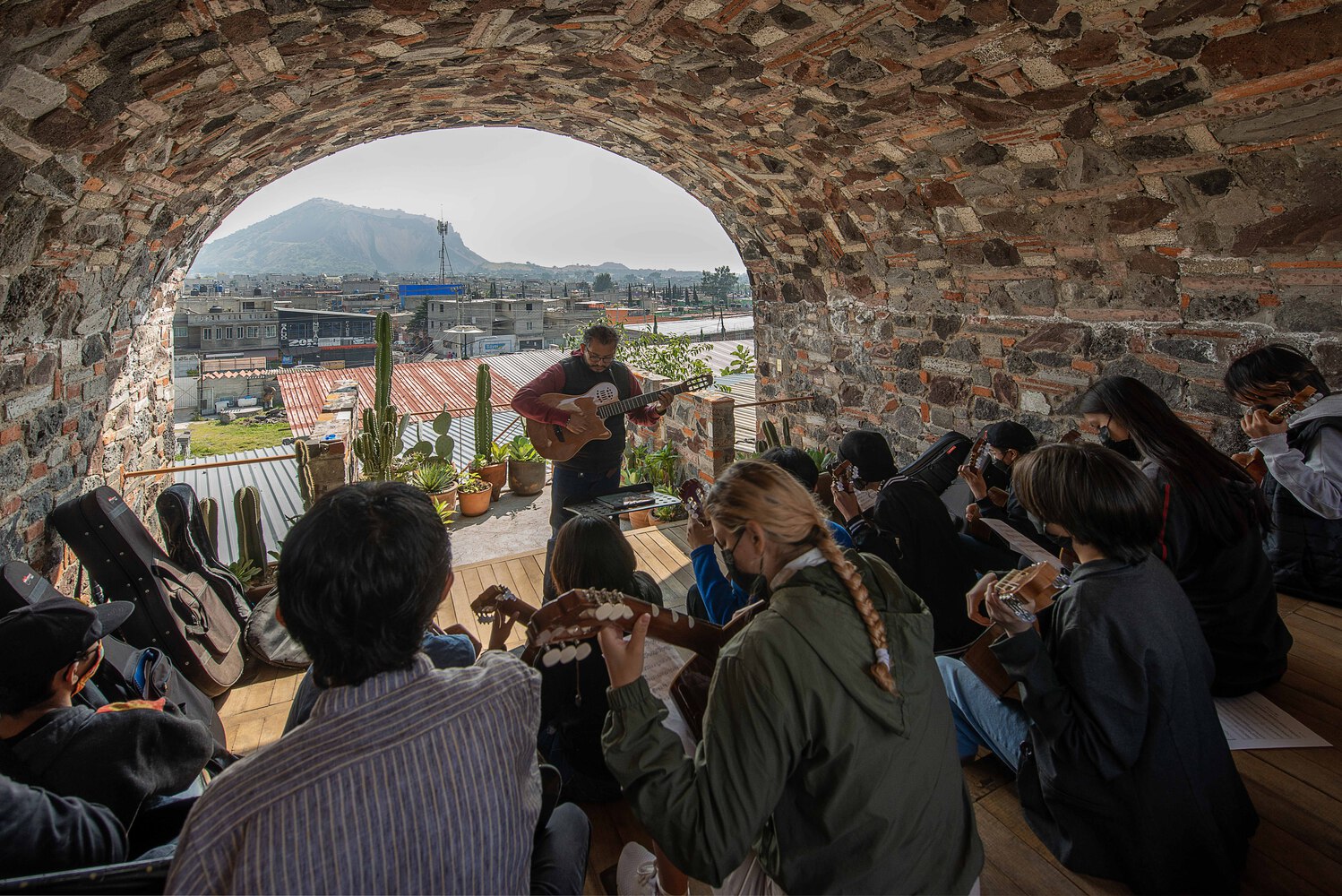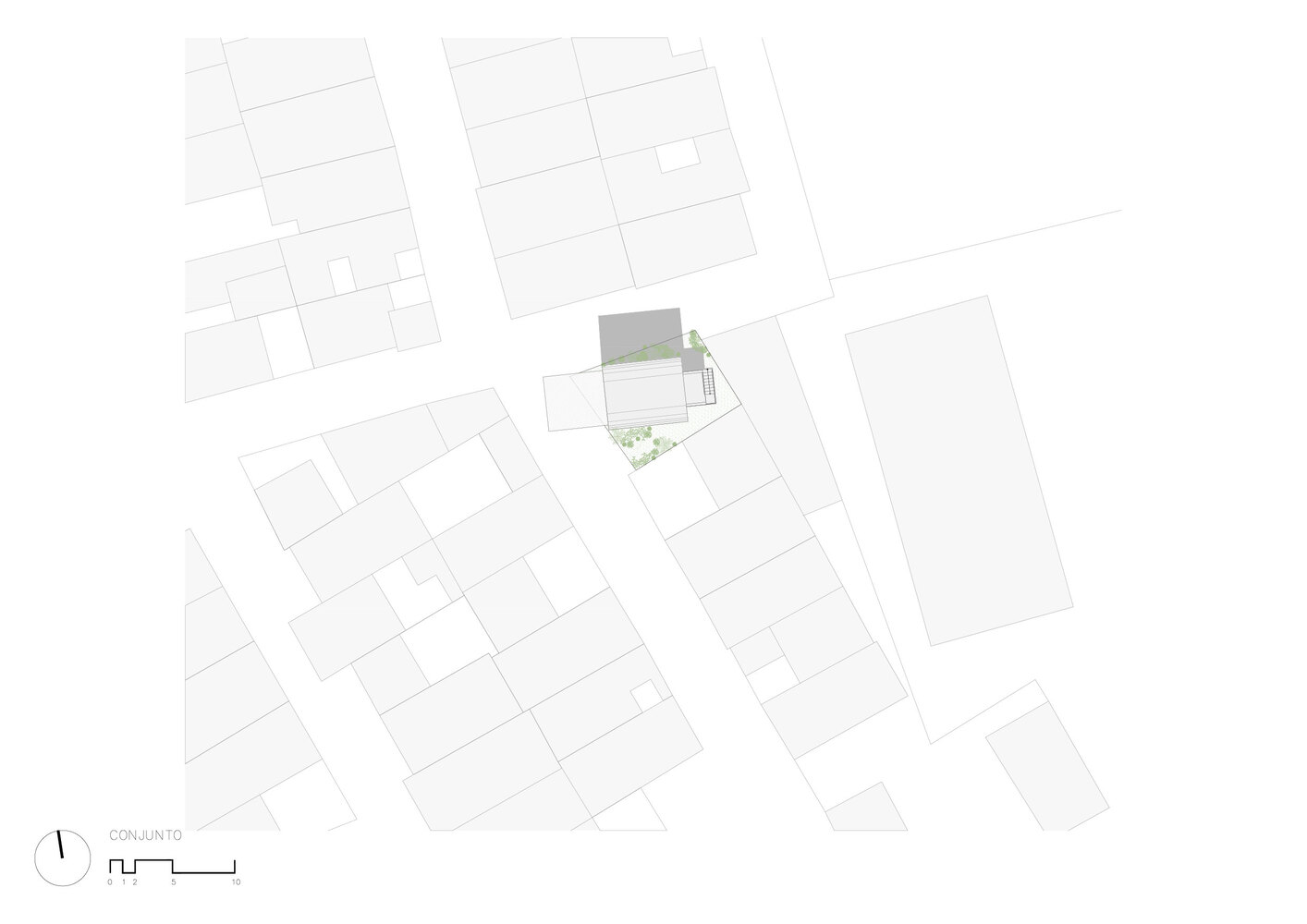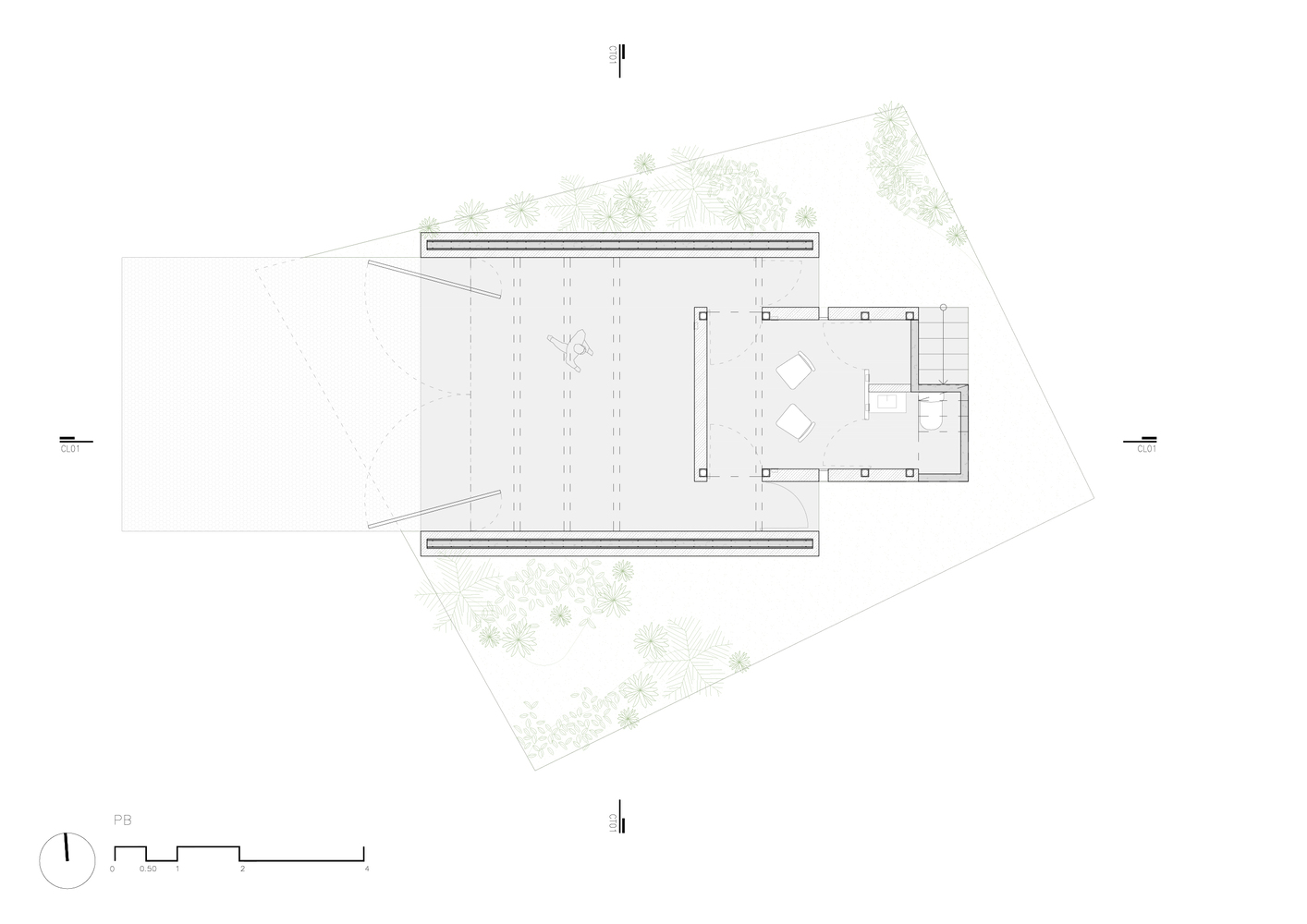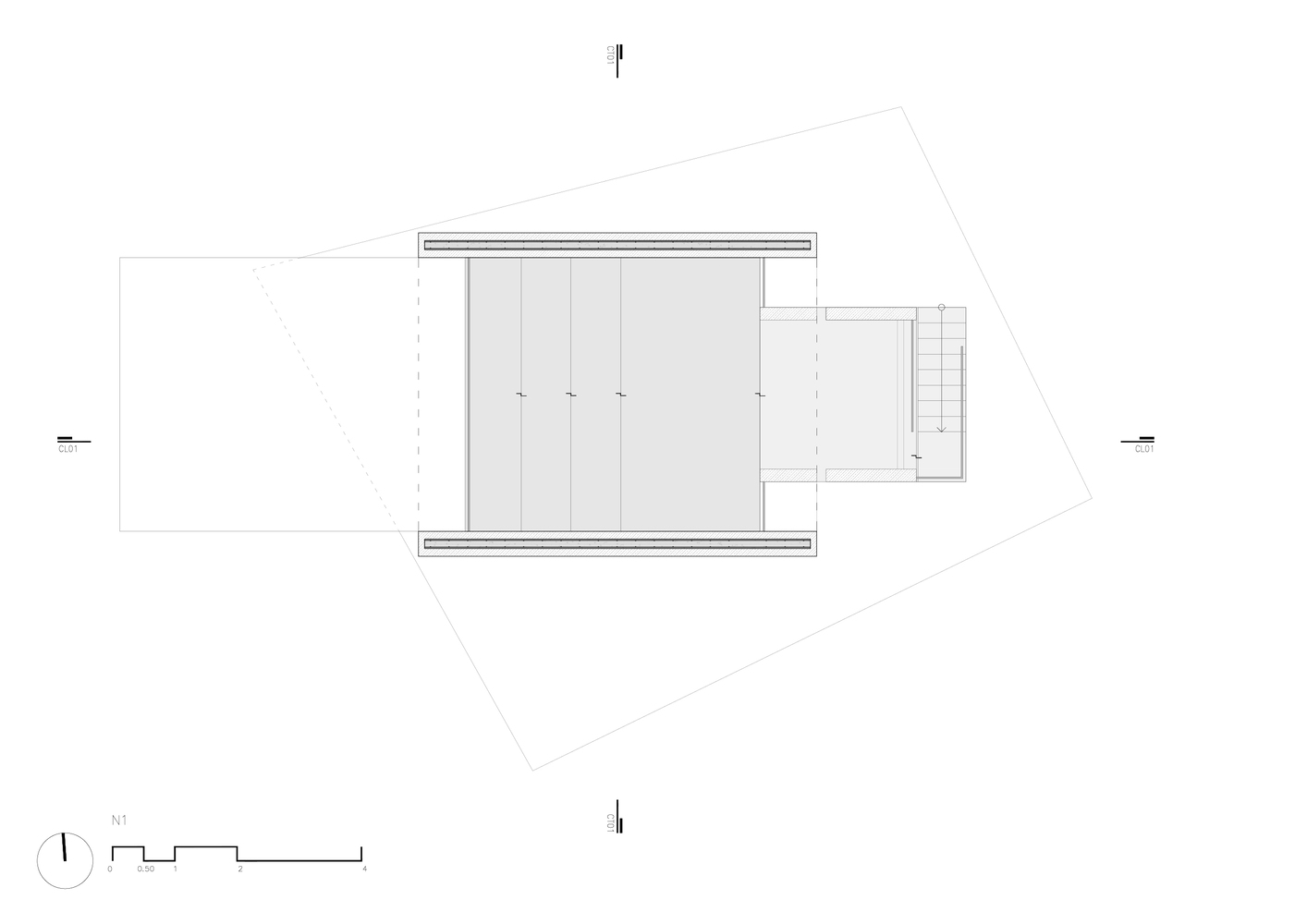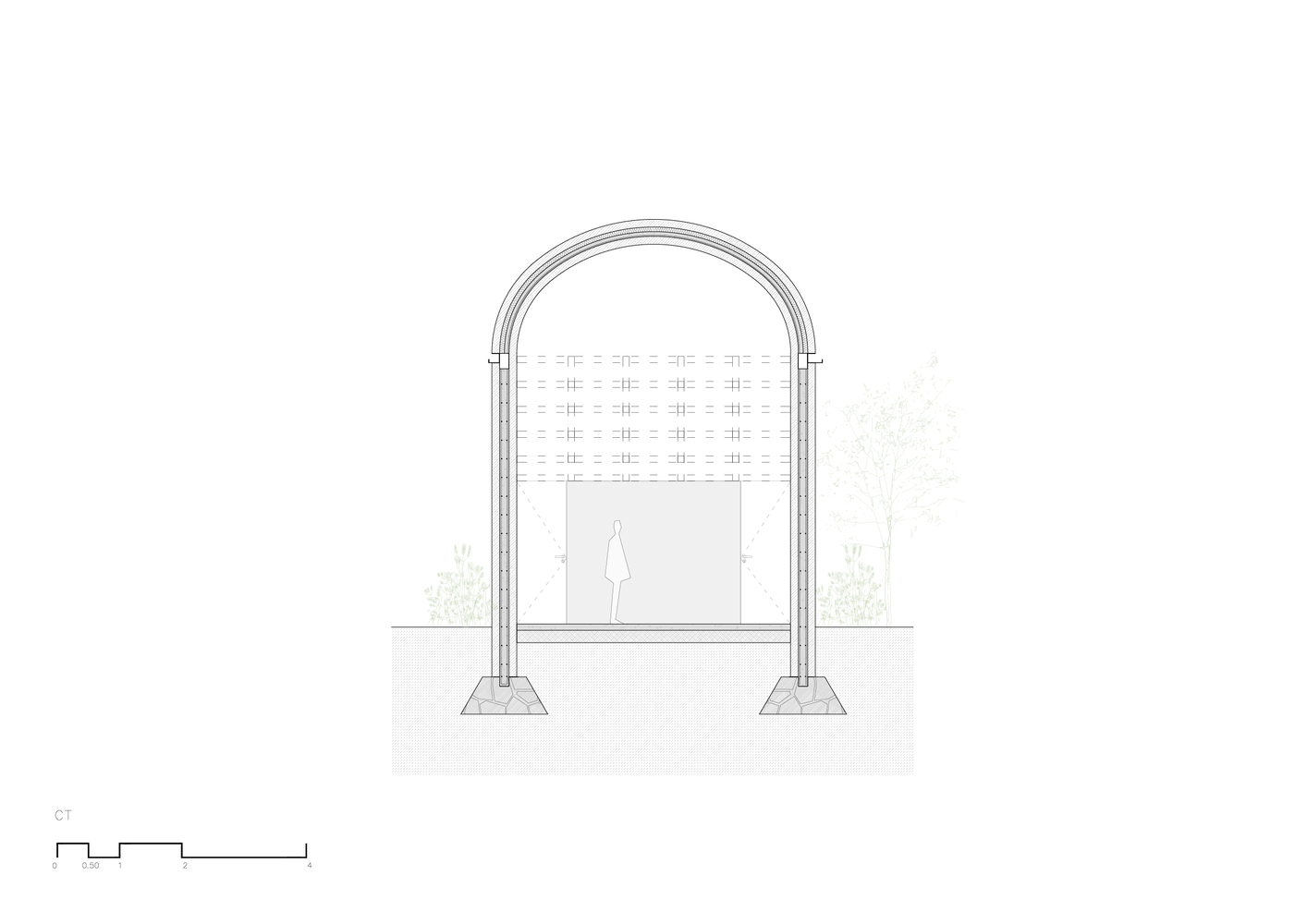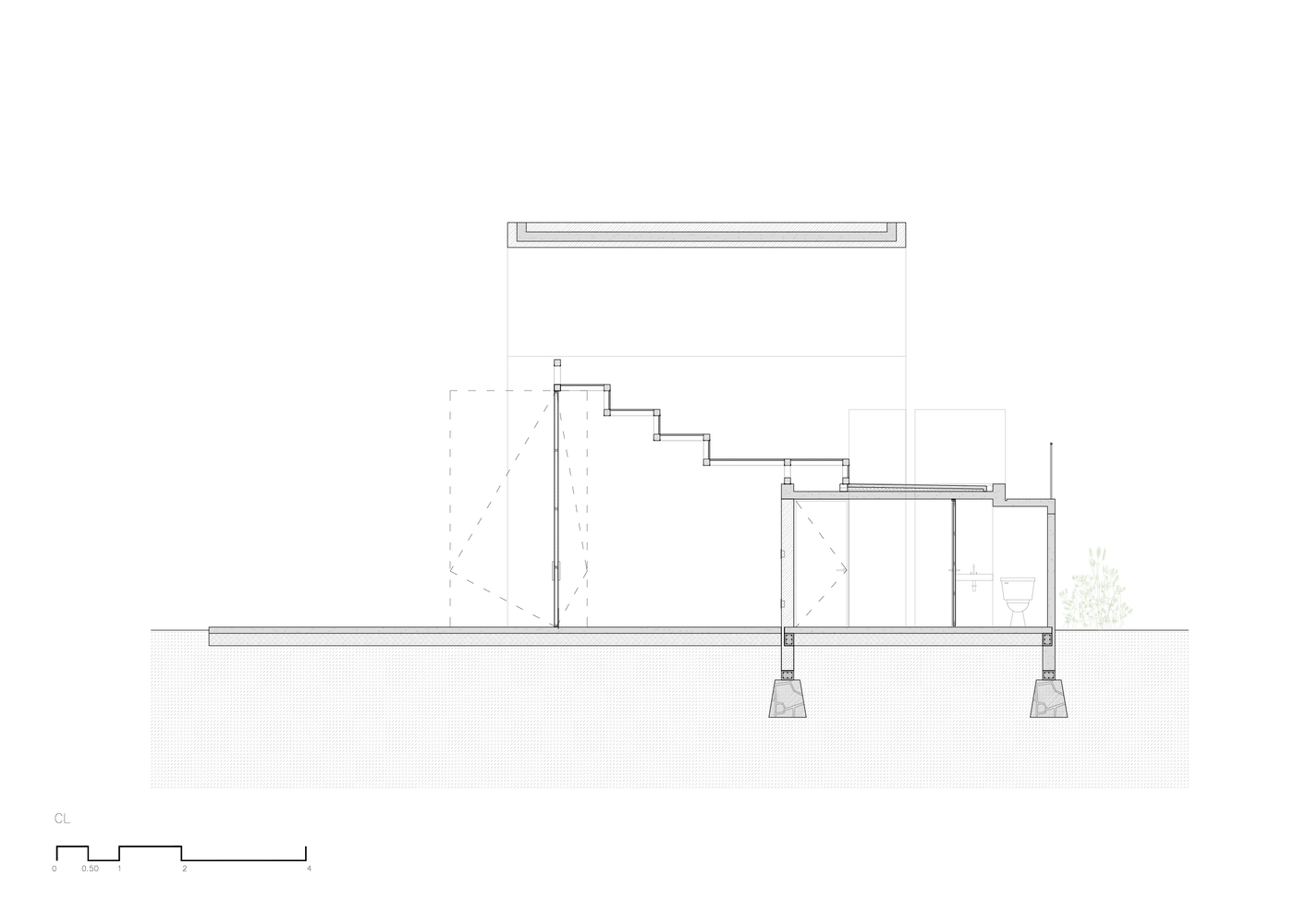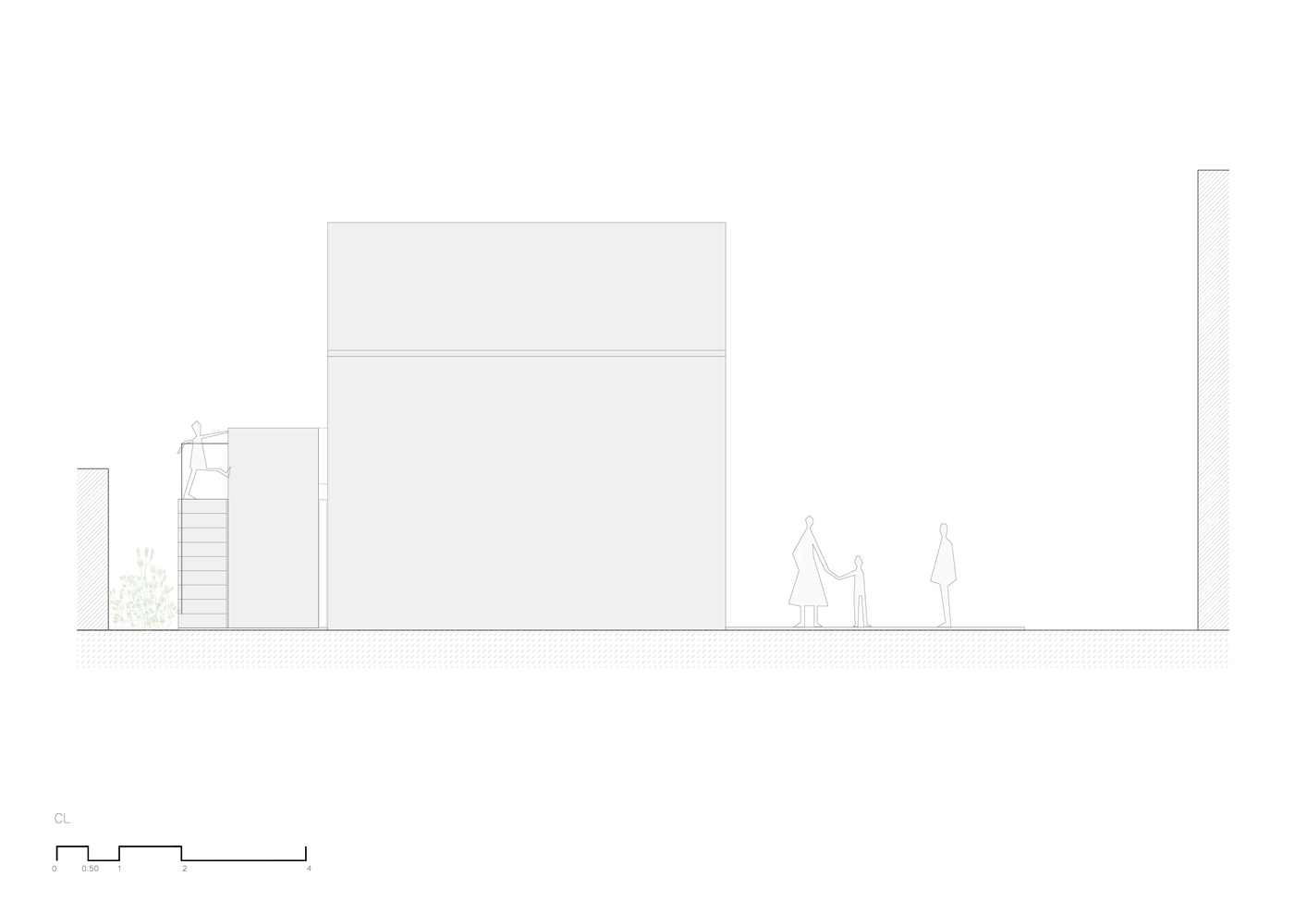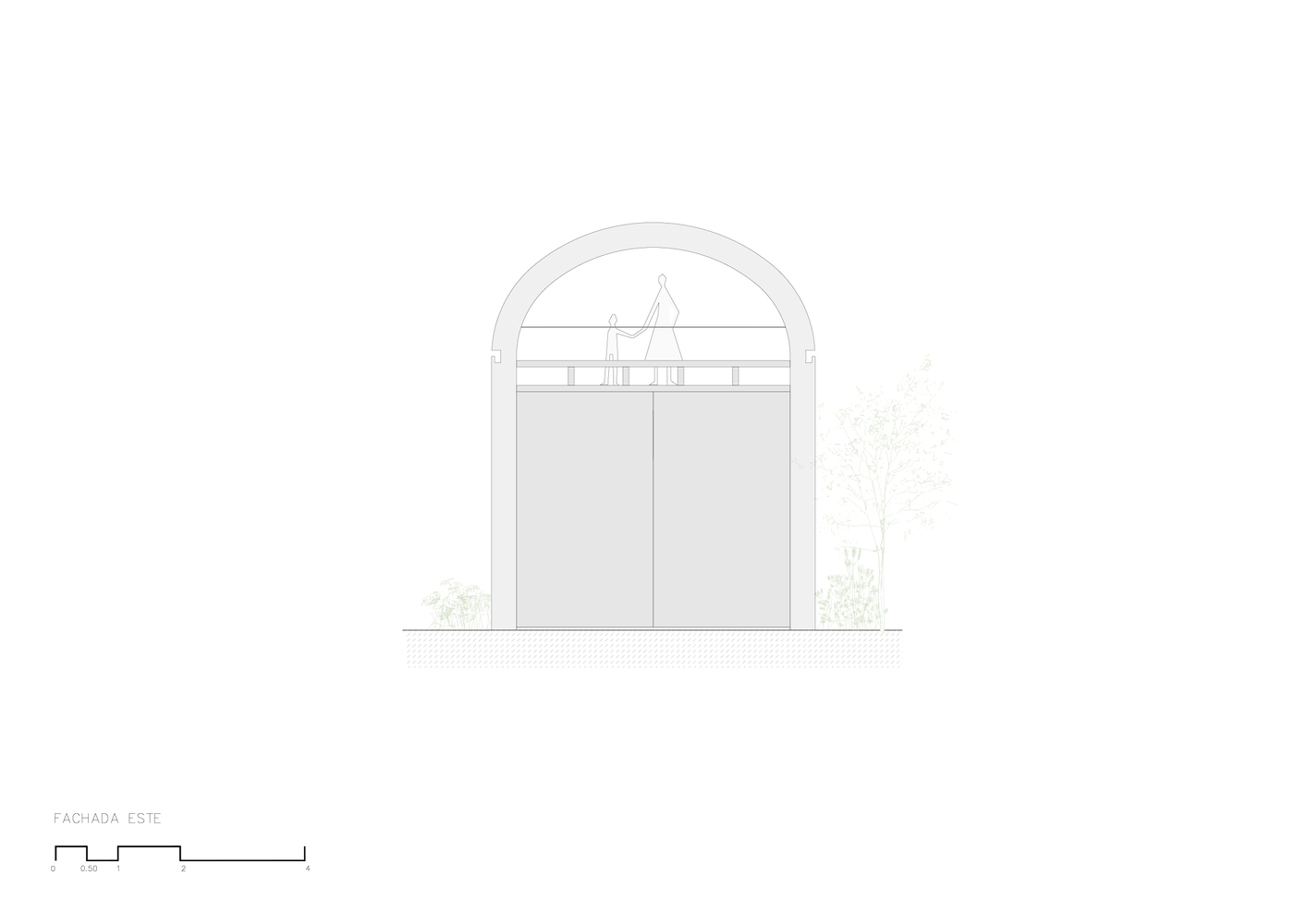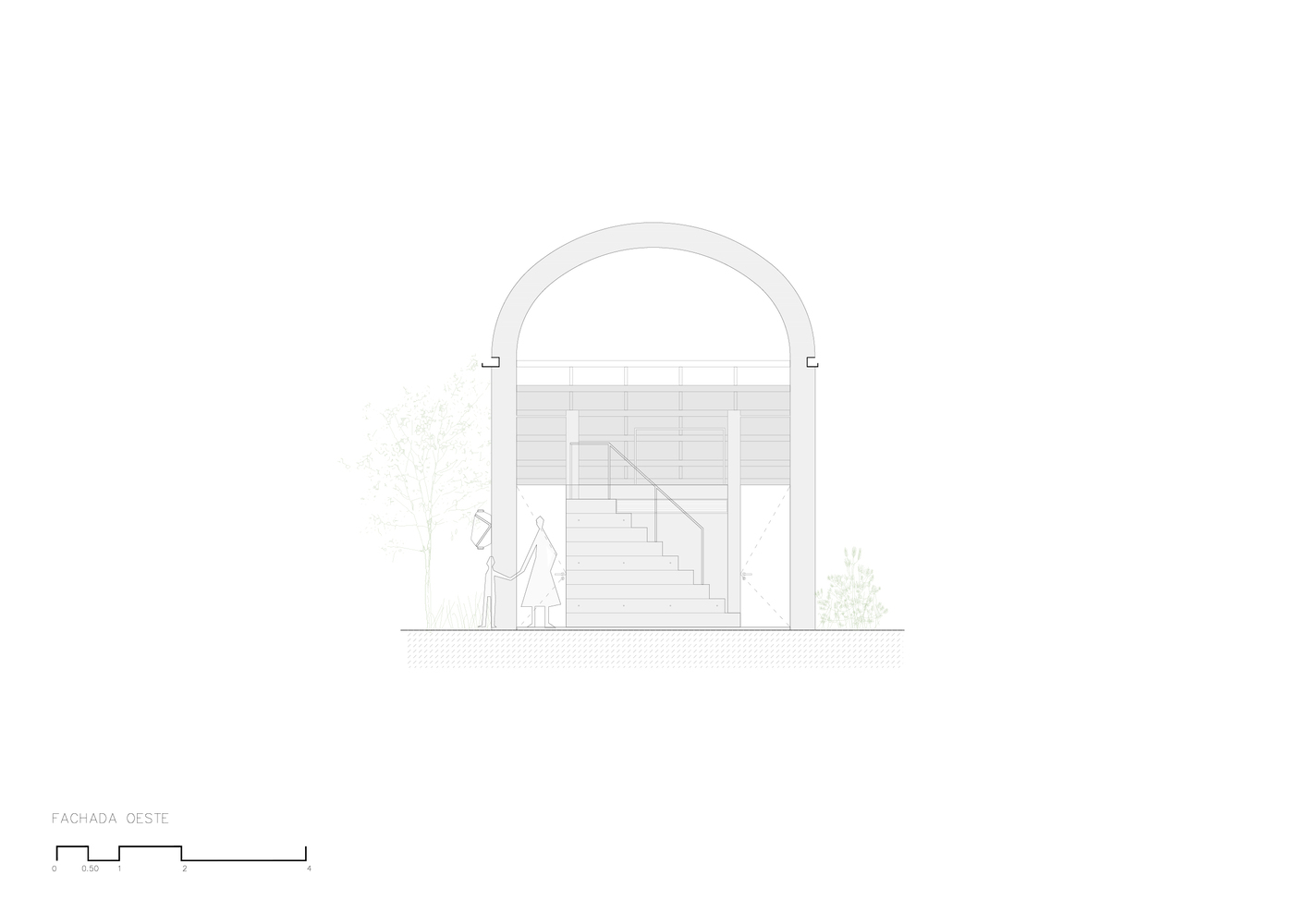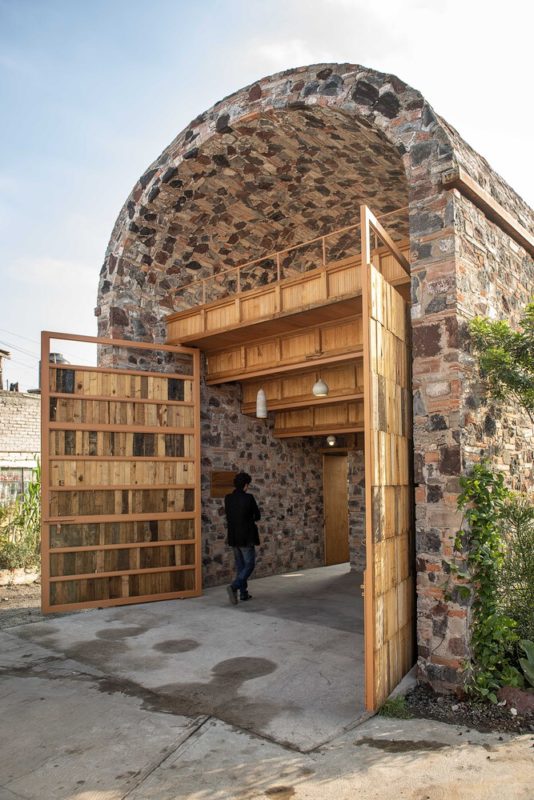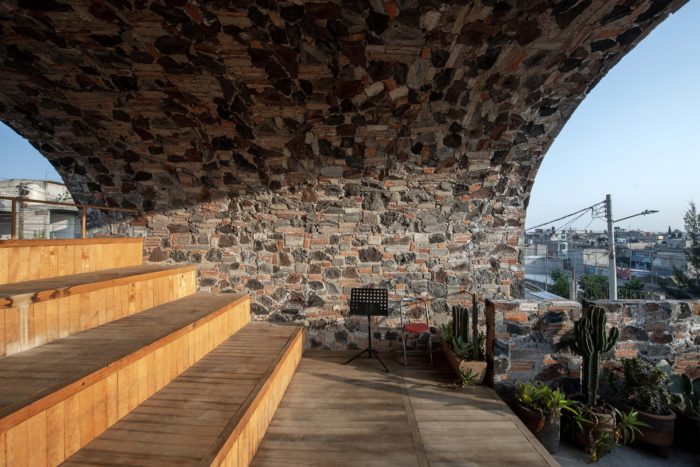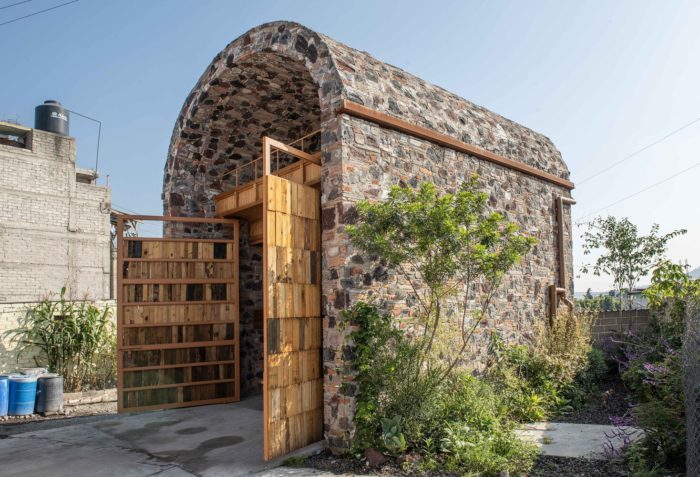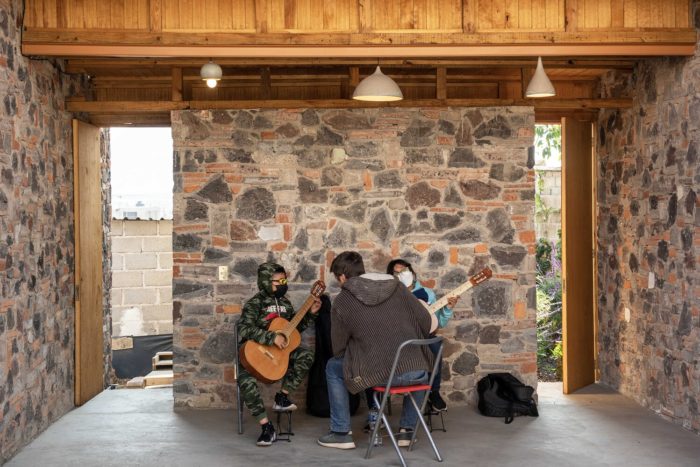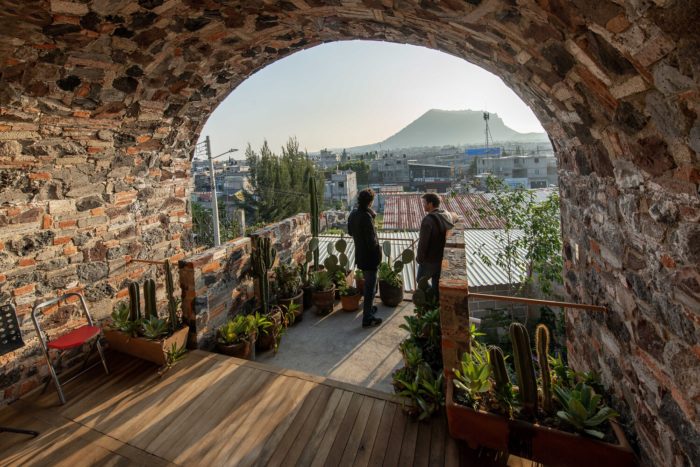Kithara Music Kiosk’s Concept:
It could be argued that the guitar is the most well-known musical instrument worldwide. It can bridge generation gaps, socioeconomic divides, and other barriers to inclusion because of its portability, accessibility, intimacy, and democratic nature. In addition, one could argue that no other musical tool offers such a lyrical metaphor for the interconnectedness of people and the flexibility of cultural traditions.
The Kithara Music Kiosk is a guitar studio and music kiosk in the underprivileged neighborhood of Yuguelito in Iztapalapa, Mexico City, a volatile region due to high rates of crime, poor soil quality, and a lack of fresh water. Yuguelito is situated on a plot of land used as a dump for earthquake wreckage after the 1985 quake. It was a group effort to prepare the ground for building and to set aside a domestic district. Residents of the area gave the Kithara Music Kiosk land next to the public library.
The studio aimed to strike a happy medium between sound insulation and echoes when designing a masonry vault to collect rainwater and a wooden stand to sit on. The building’s upper classroom faces Xaltocan Volcano, an important landmark in Iztapalapa. In contrast, the lower classroom is slanted towards the intersection of two streets to accommodate better public gatherings and a more significant number of people.
The local community gave red brick, cement blocks, eruptive stone, and tezontle to construct the walls and vaults. The firm’s construction manager hired three Yuguelito natives to build the structure.
Given its origins in group endeavor and its commitment to serving the people of Yuguelito, the Kithara Music Kiosk qualifies as a Communal Space. In 2015, the initiative kicked off with the arrival of a band of guitar instructors who offered free lessons to locals. Women, toddlers, adults, and seniors quickly joined the classes.
As a gesture of gratitude, the neighborhood voted unanimously to give Kithara Project a tiny piece of land to construct a school. The Kithara foundation’s project head, Matthew Rhode, contacted TO architects to create the architectural plan.
The first stage was a community workshop where the firm invited guitar students and locals to sketch their dream music school. They used those blueprints to create the building’s layout plan.
Ultimately, a community project proposal was shown with models and sketches, and additional feedback was considered. Despite the project’s approval, it took over five years and a lot of teamwork to raise enough money to build it. The Kithara Music Kiosk’s design plan reflected a communal attitude by suggesting that all building materials be reclaimed from existing structures or donated by community members. The workforce was also primarily comprised of locals.
In recent years, the community has expanded Kithara Music Kiosk’s scope beyond its original goals, using it to host events as varied as choral performances, theatrical productions, and social meetings. The scale may be that of an individual’s private area, but it most assuredly echoes that of a public one.
Project Info:
Type: Educational
Location: Mexico City, Mexico
Architects: TO
Area: 646 ft²
Year: 2022
Photographs: Jaime Navarro
Client: Matthew Rode, Kithara Foundation
Structural Calculation: Armando Pelcastre
Construction: TO, Mtro. Pablo Escobar
Landscape: Entorno, Tonatiuh Martínez
